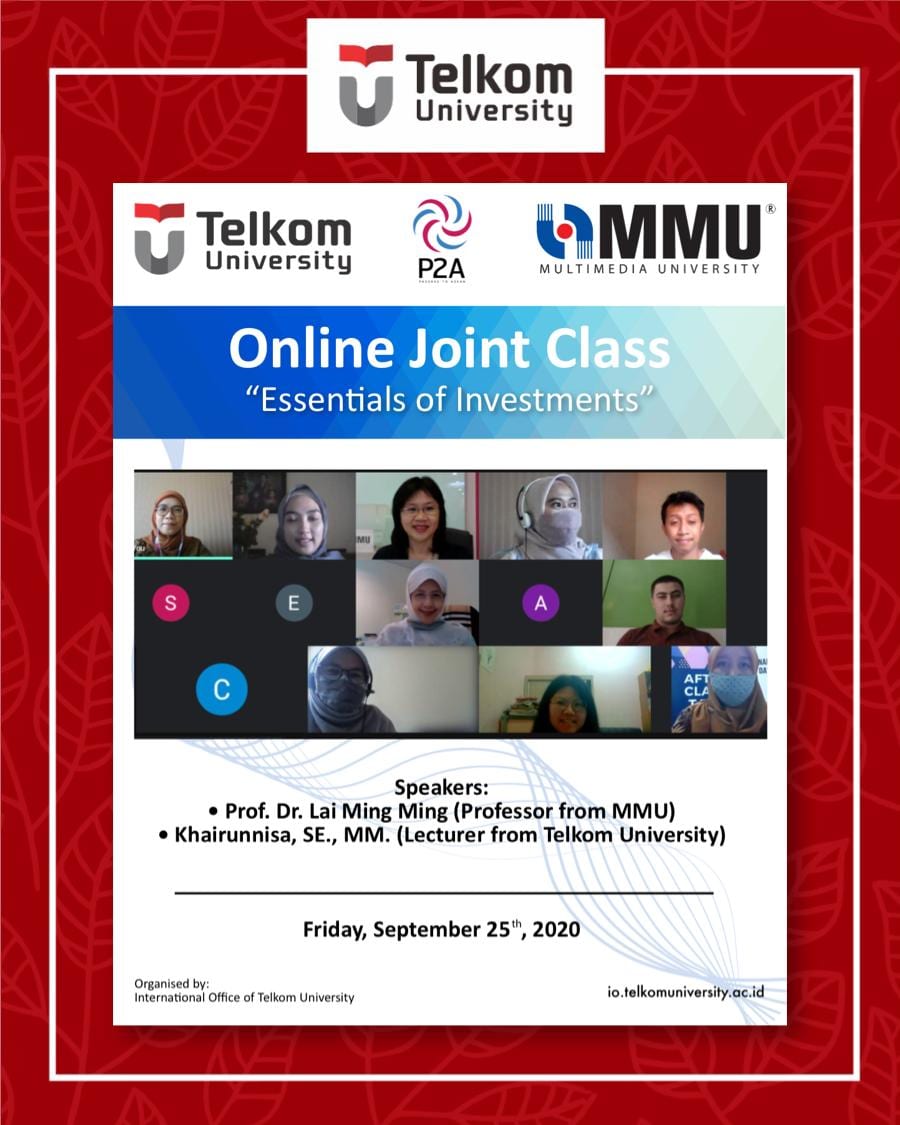
Essentials of Investments, the 17th Online Joint Class Tel-U & MMU
Essentials of Investments, the 17th Online Joint Class Tel-U & MMU. In facing the fluctuating economic situation in this pandemic era, we must be careful in choosing investments that are safe and have a high return. For most of our lives, we will be earning and spending money. When current income exceeds current consumptions, people tend to save the excess. As the conventional saving, in the past era, people tend to put their money or valuable things under their pillow/mattress, or bury under backyard.
This case will make the amount remain the same. However, now people start seeking the other way to make their saving increased. Prof. Dr. Lai Ming Ming, a professor from Multimedia University Malaysia, and Khairunnisa, S.E., M.M., a lecturer from Telkom University shared information on the Essential of Investments in the 17th Online Joint Class Telkom University & Multimedia University Malaysia, on September 25th, 2020. Hundreds participants joined the online class to seek for the information of the investments.
Investments are assets or goods that are obtained with the aim of generating income or appreciation. When we buy an item as an investment, the goal is not to consume that item but to use it in the future to create wealth. Investing always has something to do with spending some current assets such as time, money, or effort in the hope of getting a bigger return in the future than was originally invested, (source: https://www.investopedia.com/terms/i/investment.asp). According to Prof. Lai, an investment is the current commitment of dollars for a period of time in order to derive future payments that will compensate the investor for:
- The time the funds are committed
- The expected rate of inflation during this time period
- The uncertainty of the future payments
Here are the global investment choices:
- Bond and preferred stocks investments
- Stock investments
- Warrants and options
- Futures contracts
- Unit trusts/mutual funds
- Real assets
- Low liquidity investments (diamond, art, antiques, coins & stamp)
Remember, insurance, including life insurance, health insurance, disability insurance, and automobile insurance can be included into the preliminaries of investments. This investment helps to meet events such as emergencies, job layoffs, and unforeseen expenses. If you are interested in stock investment, pay more attention on several aspects, such as intrinsic values, stock characteristics, portfolio management strategies, stock picking, market timing, and investment decisions. The followings are the basic strategy in stock investment:
- If estimated value is higher than a market price, BUY
- If estimated value is lower than a market price, SELL
- If estimated value is same as a market price, HOLD
Hopefully, we all can make a good investment to create wealth in the future. See you next month in the 18th Online Joint Class.(IO)***